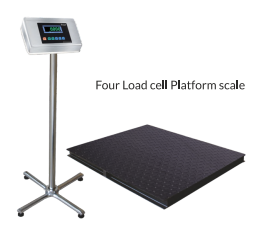
Most of the international students don’t know how much bands required for canada student visa. Here are 5 hidden tips which help you to crack IELTS exam. Let’s know them one by one.
5 Hidden Tips to Crack IELTS exam
1. Work on and improve your speaking, writing, reading, and listening abilities.
As you listen
You will be given recordings to listen to throughout the test that may have American, British, Australian, and other accents. In order to avoid having trouble understanding movies, television episodes, etc. with varied English accents during your IELTS exam, be sure to incorporate listening to them into your regular practise.
The recordings will be made in a variety of contexts, such as a monologue, a group discussion, a social speech, etc. Practice listening to a range of audio and video in order to stay up.
In order to absorb the substance of what you heard and respond to the questions, try training your mind to focus on the major elements while you listen. Give yourself the exposure you need to improve your listening abilities. There isn’t another option!
b. Writing Nowadays, we type more often than we write, thanks to digital literacy. You’ll need to brush up on your writing abilities and return for the IELTS exam. Train yourself to write quickly while avoiding grammatical and spelling errors.
By reading books, focus on expanding your vocabulary so you can use it while writing. Start as early as you can.
When taking the IELTS exam, start with the essay portion before moving on to the section that asks you to describe a specific figure or graph. Get it out of the way first, since an essay just takes longer to finish.
b. Reading: The IELTS exam will require you to read lengthy sections, so your reading speed is crucial. You will need to read a lot each day to achieve this. Only then can you improve both your reading speed and your comprehension of the material needed to provide prompt and accurate answers to the questions.
It’s essential to increase your vocabulary. Otherwise, it will be difficult for you to understand the chapters’ terms and answer questions. It would be better to concentrate on developing a large vocabulary by reading everyday books, periodicals, and newspapers.
Along with practising reading rapidly, work on the skill of skimming through a document, which can help you quickly identify the answers in the document provided during your exam. Rereading the full chapter will take time away from other test-taking activities.
b. Speaking: Craft compelling responses. Do this with assistance from an authority on subjects relating to myself, my family, my interests, etc. These are the kinds of questions that the examiner will ask you during your IELTS test.
Get over whatever speaking trepidation or shyness you may have. Practice speaking English effectively to family, friends, and even yourself in front of a mirror. While speaking, pay attention to your tone of voice, enunciation, and body language.
Respond to questions from the examiner by providing facts-based responses rather than bluffing. Recall that they are the professionals!
Practice saying “well,” “actually,” “honestly,” etc. in place of “um” and “err” when you need a little moment to reflect before responding to the examiner.
When the examiner asks you a question, talk a lot.
Do not attempt to speak with a strange accent in order to impress the examiner; instead, speak with your normal English accent. He will notice this, and he will mark you negatively.
2. Put speed first
Your proficiency in speaking, reading, writing, and listening is directly correlated with how well you do on the IELTS exam. This is due to the timed nature of the test and the higher number of questions overall. Thus, passing the exam will surely be challenging if you are not prompt with your responses.
3. Stay Calm
Avoid becoming anxious during the exam, as anxiety causes the Amygdala region of the brain to shut down.It then prevents any information from being sent to the other brain regions for further processing. Keep calm and patient both before and during the test since you do not want your amygdala to shut down.
On test day, don’t spend too much time studying; instead, quickly go over the key concepts.
Keep in mind that if you become worried when speaking, it may affect your abilities, and you can come across as unconfident to the examiner.
4. Test your IELTS skills. Sample documents
Purchase the IELTS study guide, which includes books with example test papers. It is important to regularly practise these papers. You’ll benefit:
Recognize the pattern on the paper.
Speed up how quickly you respond to the questions.
Boost your self-confidence level to 5. Answer every question.
Keep in mind that there is no negative grading on the IELTS exam. So even if you are unsure about the solution, do it anyhow since you never know.
5. In the paper, all questions must be addressed
The following considerations should also be kept in mind when you study for the IELTS exam:
Make a schedule that you can see and post it in your room. This will act as a visual prompt and aid in maintaining your concentration.Give daily practise of each IELTS exam component the same weight as the others.
Join a reputable IELTS training facility. Along with your self-practice, this will assist you in passing the test.
Maintain your attention and discipline. Do not put off or postpone your everyday practise.
Always establish connections with friends and classmates who are taking the IELTS exam at the same time as you; this will keep you motivated and informed about the different useful tools and study materials available.
Conclusion
This is one of the best guide for aspirants who want to study in Canada after 12th. This blog help you to understand.


